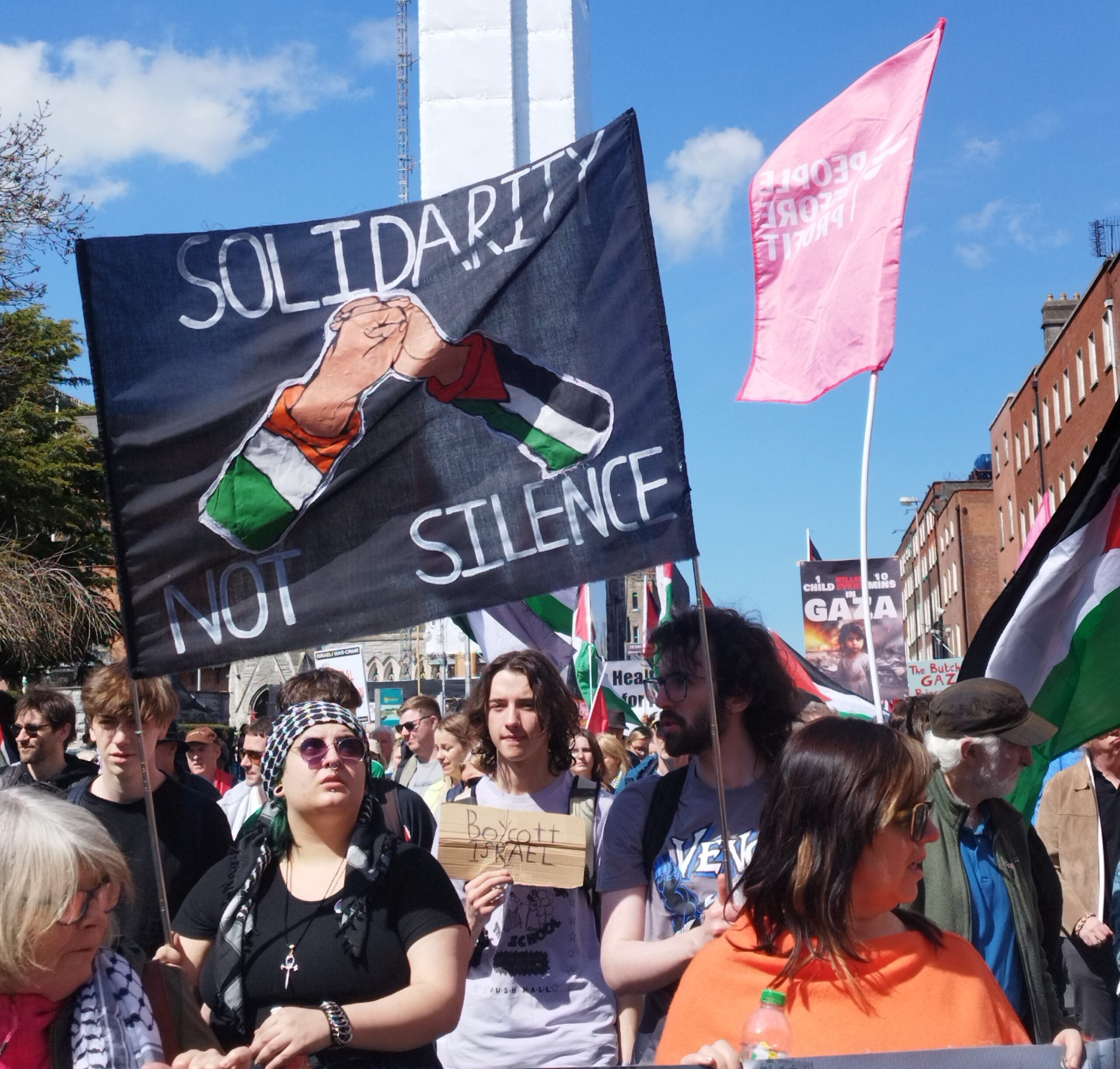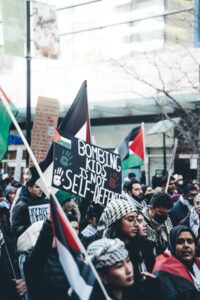
April 24th marks International Day of Multilateralism & Diplomacy for Peace which was founded after the devastation of the Second World War in 1945 with one central mission: the commitment to settle disputes through peaceful means and the determination to succeeding generations to avoid the scourge of war.
On our screens and in our newspapers, it is hard to believe that such a mission remains when countries with United Nations (UN) veto powers, largely from the West, have continued to prevent justice via security council briefings vetoing several calls for a ceasefire in Gaza. Only last month, did a draft resolution pass calling for an ‘immediate ceasefire’ during the month of Ramadan and the urgent need to expand the flow of aid into Gaza – possible only due to the United States abstaining its vote.
Last week, Ziad Abu Amr, Special Representative of the President for the State of Palestine, emphasized in his statement to the UN, that the Palestinian people are “victims of a history not of their making” and compelled Israel to end its aggression on civilians, allow aid to be delivered to starving people, immediately withdraw from Gaza and comply with international law.
His concluding words are worth reflection: “We rely on peace-loving nations to end this war,” he urged.
It has been seven months since the Hamas attack on October 7th and in that time, Palestinian deaths, largely women and children, continue to rise.
These terrible attacks can never justify the killings of thousands of people in vengeful collective punishment, yet Israel continues to violate international law as hospitals, schools, Churches and Mosques have been flattened in bombardments and declared humanitarian ‘safe-zones’ are not free from violence.
The Gaza strip has been forced into a humanitarian crisis, where thousands of civilians now face starvation as neighbourhoods have been levelled and aid corridors blocked by Israeli forces.
In just seven months more children have been killed in Palestine than in four years of conflict worldwide (Source: UNRWA) – this is abhorrent and we are all witnesses to this war on children.
As more civilian casualties grow – the world is asking why the UN is idle, paralysed from meaningful action? The need for security council reform couldn’t be more urgent.
The European Union (EU) in bearing witness to these war crimes is not free from criticism either. The Union itself was formed to prevent war, uphold human rights and democratic values, and bring unity across Europe; however, in its reluctance to make a stand and call on Israel to cease its disproportionate attacks on Palestine – the EU as a champion for human rights rings hollow.
European Commission President Ursula Von der Leyen in her statement immediately following the October 7th attacks in Southern Israel, the Commission chief rightly condemned Hamas’ unlawful killing of civilians and hostage taking. But after weeks, then months of Israeli ground offensives of the Gaza strip, subject to countless war crimes including the blockade of humanitarian aid, Von der Leyen, spoke only of Israel’s ‘right to defend itself’ without ever mentioning Israel’s obligation to observe international humanitarian law.
It would take thousands more deaths, most of which are children, for Von der Leyen to call on Israel to respect the ‘rules of war’.
We must ask ourselves what message that makes at a time when 1.1 million people, already grieved having lost their homes and loved ones and are now facing starvation?
But how can we support the people of Palestine?
 Europe is Israel’s largest trading partner and Israel benefits additionally from its privileged access to European markets under the EU-Israel Association Agreement (1995). Additionally, The 2004 European Neighbourhood Policy of which Israel is a beneficiary offers opportunities for more enterprise/market opportunities – all of this means the EU has significant leverage on Israel.
Europe is Israel’s largest trading partner and Israel benefits additionally from its privileged access to European markets under the EU-Israel Association Agreement (1995). Additionally, The 2004 European Neighbourhood Policy of which Israel is a beneficiary offers opportunities for more enterprise/market opportunities – all of this means the EU has significant leverage on Israel.
Fundamental to these agreements and policies is the rightful declaration that the EU should not implicate itself in any actions that breach international humanitarian law and must also ensure that the benefits of co-operation are used in the proper spirit of this law.
Article Two of the EU-Israel Association Agreement states:
“Relations between the Parties, as well as all the provisions of the Agreement itself shall be based on respect for human rights and democratic principles which guide their domestic and international policies and constitute an essential element of the Agreement.” (European Commission: 2011)
By continuing its trade association with Israel, the EU is acting against its very own principles and as the Euro-Mediterranean Human Rights Network (EMHRN) has described the EU’s handling of Israel’s violation of international humanitarian law (long before the attacks of October 7th) as demonstrating “a pattern of accommodation bordering on acquiescence”.
In Ireland, it is the people who have continuously stood in solidarity with the people of Palestine pressurising the Irish government to take leadership within Europe to speak on behalf of Palestine and champion human rights.
This pressure is working, seen more recently in Taoiseach Simon Harris’ statement to the Israeli Prime minister, in voicing the people’s ‘repulsion’ to Israel’s onslaught on civilians but words are not enough – economic sanctions and an end to arms sales fueling the conflict speak louder and it is in Europe’s power to force direction for diplomacy and peace.
As Irish people, we have a shared history with Palestine and a platform in Europe to make a real influence by way of peace and justice guided not only by International Humanitarian law but by European ethics and ideals of which, we should be proud of –
We can be leaders in reminding the EU of its true identity.
You can read our previous statement on Gaza: here
Second photo credit: Mohammed Abubakr, IG: @mo.abubakrr

